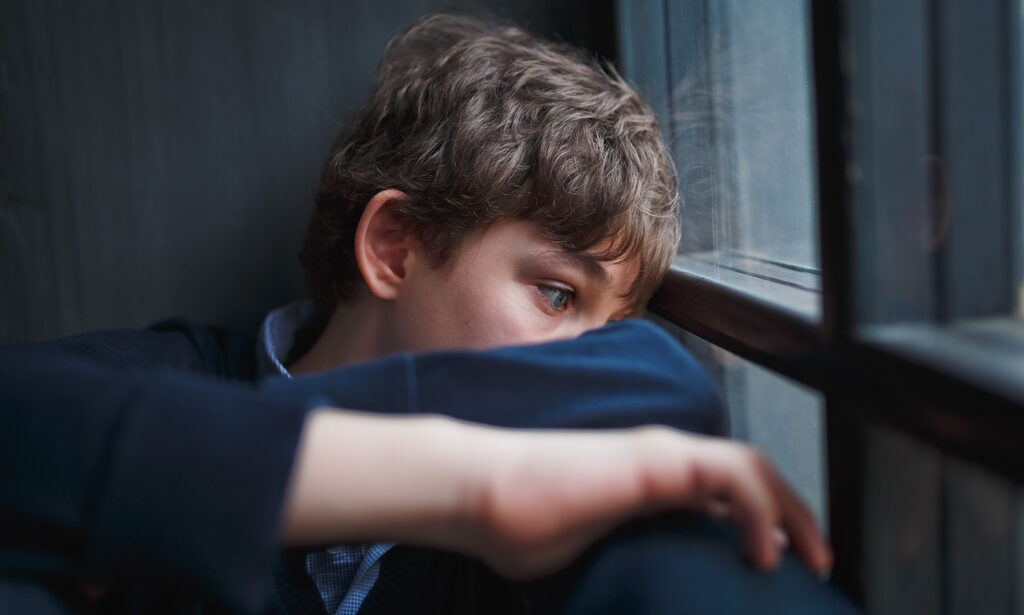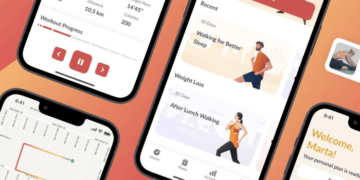Signs of depression manifest differently in kids and adults. Spotting these signs can be difficult because most people hide them well. Even kids don’t show their true feelings due to the fear of becoming an outcast.
There are subtle ways to know if your kids are depressed. One of those ways is to use parental control apps, such as the FamilyTime app. Wondering how that is possible? Before we get into that, let’s look at some of the most common signs of depression in kids, ways to spot it, and how to address it before it escalates.
Can Kids Really Develop Depression?
You might be wondering, do kids really get serious mental health issues, such as depression? People mostly associate depression with adults. But it is quite common in kids, especially teenagers. Most teens go through emotional, physical, and social changes during puberty that may lead them into a depressive state of mind. Some of the most common causes of depression in kids stem from the following reasons:
- Unstable family environment
- Genetic predisposition
- Instability in social life & peer pressure
- Extreme stress
- Hormonal changes in the body
- Fear of being an outcast
Whatever the cause might be. Witnessing drastic behavioral changes in your kids should be enough to start a conversation about whether they are experiencing depression. If you’re unaware of common signs of depression, educate yourselves and help your kids before it is too late.
Signs of Depression & Ways to Spot It

Kids go through changes way too often, and it may become harder to differentiate between a simple mood swing and a bout of depression. Simple chemical imbalances in the body, such as deficiency of vitamins, hypothyroidism, etc., can also bring out depressive behavior. Look for the following behavioral changes in your kids to know whether they are suffering from depression or not.
-
Social Isolation
Kids make friends, join student clubs, and participate in extracurricular activities. These things keep them busy most of the time. It isn’t unnatural to see them avoid these activities during stressful times, such as exams, the death of a loved one, etc. However, if kids begin to act in the following ways, it should ring alarm bells for parents.
- Making excuses to avoid friends.
- Going out of their way to avoid all social gatherings.
- Lack of interest in activities they once enjoyed.
- Skipping school
- Decline in grades
- Failing exams
- Spending more and more time alone.
-
Losing Interest in Once Favorite Activities
Young kids develop a new interest very quickly. They obsess over something one day, then lose interest in it the next day. Kids usually find comfort and joy in activities they love. It isn’t that odd to see them lose interest in an activity, fall out with a friend, or become dispassionate in a subject as they grow up. But, depression is different. It casts a deep gloomy shadow over everything, and kids bend over backward to avoid their once-loved activities, friends, and hobbies.
-
Changes in Appearance and Demeanour
Depression affects everyone differently. Your body may give away certain signs and symptoms even if you do a good job of hiding your emotions. Young kids (teens) often put in extra effort to mask their true feelings. Parents can look for some of the following signs to spot to know if their kids are depressed:
- Sleep too much or too little
- Always lethargic
- Sleep at odd hours
- Lack of immunity
- Heightened display of emotions, anxiety, anger, etc.
- Distant or detached behavior
- Persistent lack of personal hygiene
-
Skipping School or Decline in Grades
Even if your kids don’t always ace every subject, they try to do enough to bring good grades so that they can attend college. But, you must immediately intervene if you find out that your kids are skipping school too often, failing their exams persistently, or losing interest in studies altogether. It could be a sign that they are depressed and dealing with it in their own way. They might even be unaware of their depression. In such a scenario, parents need to step in and help their kids address this issue before it causes irreparable damage.
How to Address Depression in Kids?

Once you see signs of depression in your kids, you must immediately step in and help them resolve it. Most experts state that developing an open relationship based on trust is key to establishing a healthy relationship with kids. It is vital to kids’ mental and physical health that they grow up in a stable environment where they can share their true feelings. Parents must,
- Show compassion and try to communicate to their kids without making them feel shunned, ashamed, or embarrassed.
- Pay attention to what their kids tell them. Acknowledge their hardships and try to relate to their feelings to make them comfortable. Show them that you respect their opinions instead of demeaning or negating their words.
- Try to be more involved in their lives. Figure out what they like and share a hobby or an activity together. Talk a walk, play a game, go fishing/camping, etc., just find ways to be there for them.
Don’t give up. Even if nothing helps your kids open up about their feelings, there are ways to find out if they are depressed or having suicidal thoughts. Look for a good parental control app to be your safety net.
How Can A Parental Control App Help You Fight Depression?
Parental control apps offer safety features that can help parents find out if their kids are suffering from depression. The FamilyTime parental control app for iPhone is one of the best applications when it comes to monitoring kids’ online and offline activities. It allows parents to:
- Monitor calls & text messages
- Set internet filters to block inappropriate content – including content on drugs, self-harm, suicide, etc.
- Screen social media apps to see what their kids are doing online.
- Block apps that are not age-appropriate.
- Parents receive real-time location alerts.
- You can also create a virtual geofence for your kids so you get notified when they enter and leave specific places.
The FamilyTime app also provides an SOS/Panic button for emergencies, a Pick-Me-Up button to alert parents when it’s time to pick up their kids from a designated place, etc. Sign up to see what more it can do for you.













































